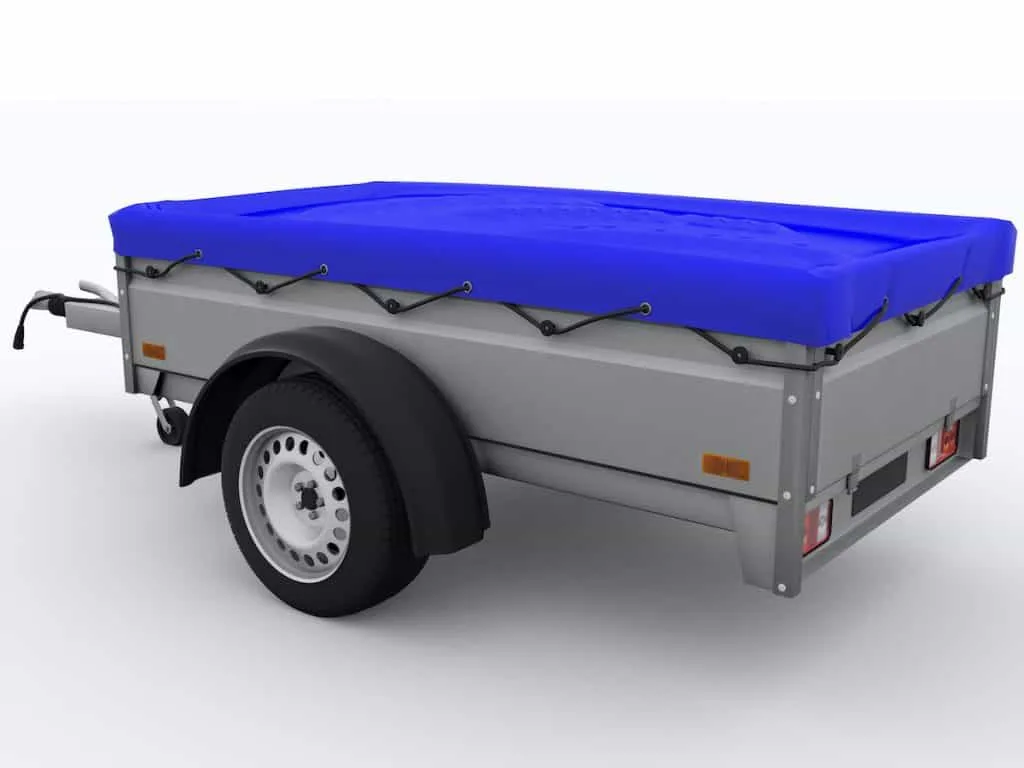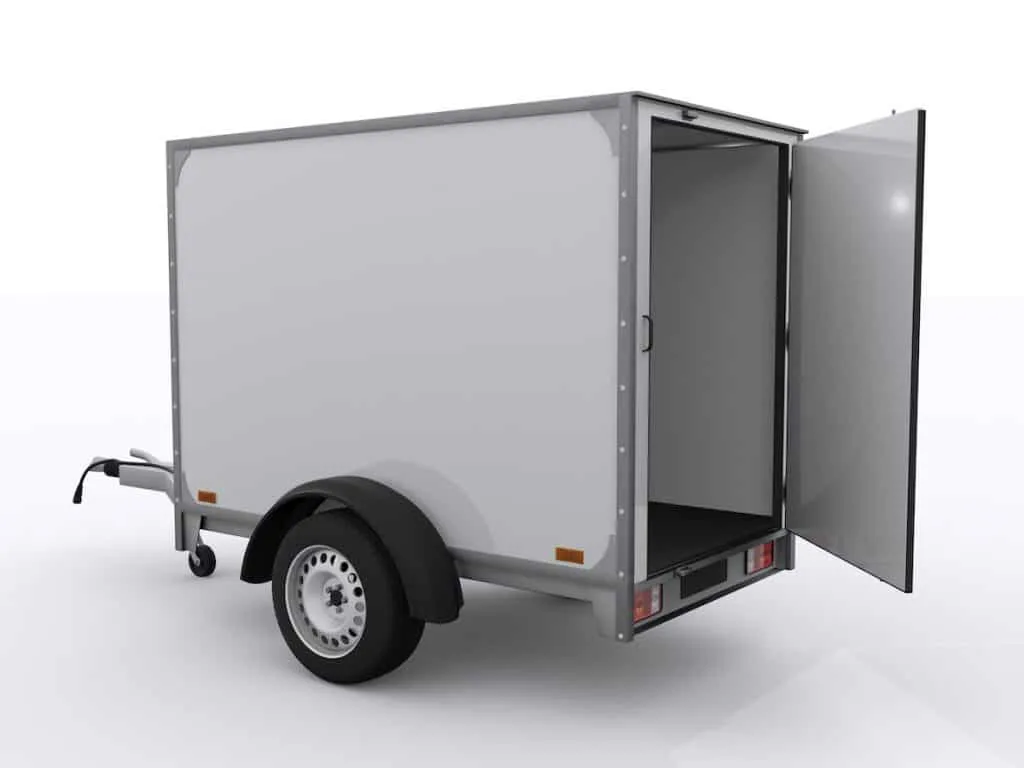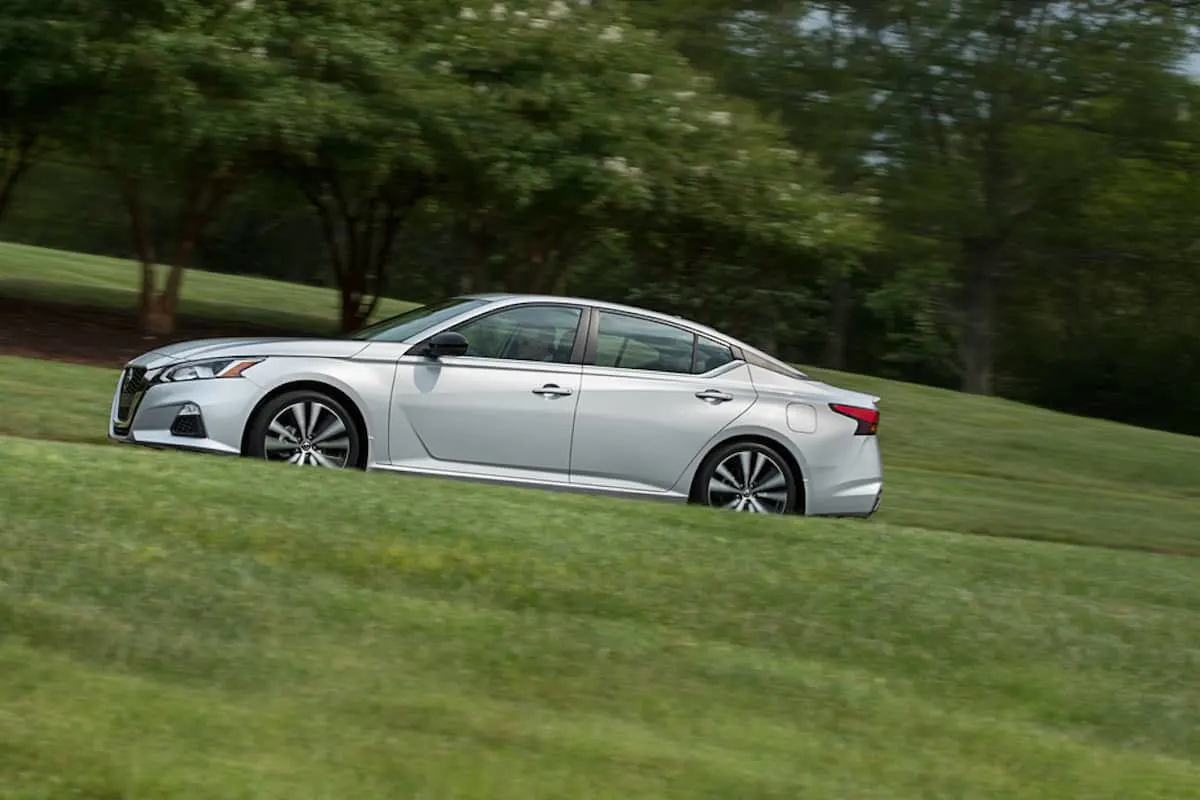A Nissan Altima is a vehicle that comes with everything that you could want in it. This Nissan model is a four-door sedan that you can use for dropping the kids off and also get to work with style.
However, if you need to use your car for towing a trailer, you might think that this is not possible. Well, although it might not seem likely, you can actually do it with this vehicle.
So, can a Nissan Altima pull a trailer? You can pull a trailer with a Nissan Altima, with its 1,000-pound towing capacity and proper trailer hitch you can do it with relative ease. As long as you balance the load correctly and do not attempt to tow anything within the first 500 miles of use with a new model, you can do the job.
We will cover the precautions you need to take and go over the proper way to tow a trailer with your Altima, among other facts that you should know about towing with this vehicle. Read on to find out more about this topic if you want to tow a trailer with your Nissan Altima.
What To Remember

Before talking about any details of proper towing practices, we want to touch on an important issue that needs to be addressed before you attempt to tow any trailer with your car.
You want to make sure that you are being safe in every way when you are adding extra weight to your vehicle.
Also, driving will feel different when you are adding a long trailer to the end of your car and will make turns and parking more dangerous. You want to make sure that before you attempt to tow anything with your vehicle that you feel comfortable doing so.
Practice makes perfect and spending some time driving the vehicle while the trailer is attached before you take to the road will make you more confident in your driving abilities and allow you to be a safer driver overall.
Take a small trip around your block or drive to a nearby parking lot for some practice turning and parking to ensure that you are ready for driving a long way with the trailer. Safety comes first.
What is the Towing Capacity?

When it comes to towing a trailer, or anything else, you need to know what the towing capacity is of the car you drive. This is the weight capacity that the vehicle can handle without damaging the car.
If you don’t follow this recommended maximum weight, then you could sustain damage to your suspension, brakes, and tires. This is especially true if you don’t make sure that you don’t ensure that the load that you are towing is well balanced.
For a Nissan Altima, the maximum towing capacity is 1,000 pounds. However, this does not mean that you can tow a 1,000-pound trailer.
You have to think about the weight of the hitch as well. If the hitch weighs 100 pounds, then you have to subtract that from the towing capacity. With the hitch, you would be able to tow a 900-pound trailer.
So, think about this when you decide which trailer you are going to tow and what hitch you will use to attach the trailer to your car.
The First 500 Miles
If you have recently purchased your Nissan Altima, or are going to do so soon, you need to know the first rule of towing. This rule says that you should not haul a heavy load within the first 500 miles that you drive.
Doing this could cause major damage to your engine, axle, or other parts of your car. You want to start with a smaller load and allow your vehicle to get used to hauling more weight.
You should also drive at a slower pace while you are towing during the first 500 miles and speed up at a steady pace instead of putting your foot all the way down on the pedal.
This will ease your car into the work that it will have to do later without causing any damage to important parts of your Altima.
Choosing a Hitch
When you are towing a trailer, you need to use a hitch to attach it to your car securely. You want to use a hitch that is made for the weight class of the trailer so that it will hold the load you will tow.
There are different types of hitches that can be used, but there is one that is not recommended for Nissan owners. A clamp-on bumper hitch is not usable on Nissan vehicles because it could cause the trailer you are towing to separate from your car as you’re driving.
However, there are several other hitch options that you can choose from that are safe to use on your Nissan Altima. Let’s take a look at some of the options below.
1. Bumper Hitch
This type of hitch is a bumper that is reinforced and has a hitch ball attached for the trailer to hook onto.
This is an easy hook-up that most people can do without help and is a great choice for lower-weight trailers.
2. Receiver Hitch
This type of hitch is an option that attaches directly to the vehicle itself.
This is a very secure option that is bolted to your car which can take a little more knowledge to attach yourself but is an ideal option for heavier loads.
3. Load-Leveling Hitch
This option is a hitch that helps distribute the weight of the trailer to its axles and tires.
This is an ideal choice for those who want to tow trailers that are near the towing capacity and will have a heavier load.
4. Ball Mount
A ball mount is an item that holds the hitch ball and goes directly into a receiver hitch.
This is the simplest way to tow a trailer and only requires you to have a hitch ball that is made for the weight class of the trailer you will tow.
Driving While Towing
When you are towing a trailer, there will be a number of things that will be more difficult on the road. Driving while towing is not like regular driving, and there are some rules that you should abide by while you are on the road with other cars.
First, you want to ensure that you secure your hitch and trailer to your Nissan Altima. This is extremely important to get right because you could increase the risk of the trailer coming unhitched while you’re driving if it is not done correctly.
Next, you want to make sure that you have connected your tail lights to that of the trailer you are towing. This is done so that while the trailer is covering your tail lights, the lights of the trailer will show the direction of where you will turn or switch lanes.
This is much safer for the drivers around you and will only take a connector kit to hook up. For long drives that will be overnight or multiple days long, this is especially important.
Then, you should also think about the road that you will be taking to get to your destination. Are there small streets, large parking lots where you can turn around if you need to?
These things are not usually an issue when you are in a regular vehicle but can make a difference when you are towing a long trailer. It will be harder a lot harder to turn, and knowing which route you will take will help you get around any areas that might be hard to navigate through.
Finally, you will want to prepare your vehicle for towing the trailer before you attach it and drive with it hooked up. Filling up your tires and checking all your fluids in your engine will help your car handle the heavier load better.
When your car is doing more work, your engine can run hot, which will affect its performance. However, if you prepare your car well enough, you will give it a better chance of handling the extra weight better without feeling strain on the engine.
Conclusion
Whether you have just bought your Nissan Altima or you’ve had it for a few years already, you can tow a trailer with it if you just prepare your car for the trip before you attach it.
With a 1,000-pound towing capacity allowing you to have several different types of trailers towed by your vehicle, you can see if the one you have is under that weight requirement.
If so, you just need the right hitch to be able to attach it to your Altima and get on the road for your trip. Whether you are heading out for a road trip, moving, or have another reason for towing, you can do it with your Nissan Altima without issues if you follow the instructions and tips that were laid out in this article.
Before you head out on the road, you can take another look at this article to make sure that you don’t forget anything.
